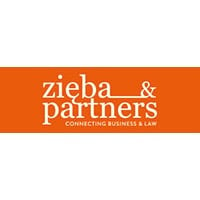

In-house lawyer | FORTUNA




Michal Toman
In-house lawyer | FORTUNA
I’ve played a central role in establishing the in-house legal practice within the company since the summer of 2018 as the company’s first-ever in-house lawyer. During my tenure I’ve been instrumental in the company’s management in trouble-shooting all issues in business matters and daily operations, including the overall legal due diligence, representation in front of the trade unions, overall corporate governance, labour matters, real estate and lease transactions, franchise and affiliate contracts, IP and IT negotiations and deal closings, as well as setting up the instant legal aid in the form of numerous contractual and other templates for his colleagues. Most recently I contributed to obtaining the new gambling and sports betting licences, where he advises his internal clients in all aspects ranging from licensing and compliance, to marketing and product placement, to AML and security. Amongst other achievements I have been a key partner in the company’s issuance of the new securities and the respective share capital increase driven by the recent legislative and regulatory requirements in the Slovak sports-betting and gambling sector.
Soft skills require higher attention in the budget. I am convinced that by investing in and properly navigating the development of the right “soft-skills” set, the hidden human capital might sprout from within everyone. Foremost I believe it is important for everyone to understand her or his own strong and weak sides before assessing these in others.
The most important soft skills in my opinion are open-mindedness, determination, great communication abilities and self-confidence.
C.H. Beck online for legal acts and sub-acts, judgments, commentaries, reasoning reports, notes, history. EPI online for legal acts and sub-acts, judgments, commentaries, reasoning reports, notes, history. Thomson-Reuters’ AML&KYC and TAS (Team Assistant) for internal online contract management and storage.
I would advise anyone starting their in-house legal careers to prepare for a cultural shift, as every company has its own and different working and human culture, influenced by factors such as family-owned business background, local competition and clients. For example, slower working pace might not suit everyone in the long run due to fewer professionally amusing challenges, or a flat corporate hierarchy might demotivate the pursuit of promotions as there are no more ladder steps to climb.
FOCUS ON… Slovakia’s gambling laws
The regulation of gambling and sports betting environment in Slovakia started in 1992, when gambling became legal in Slovakia (then still as a member state of Czechoslovakia) after being illegal for decades when the country was under the influence of the USSR. After that, Slovak players could legally play in as many as two dozen casinos, hundreds if not thousands of game rooms spread across the whole country in every small or big city, and of course sport fans were able to legally place their bets in betting shops popping up everywhere.
After more than two decades, the most recent development in the legislative gambling sector predates the adoption of the new Gambling Act (Act No. 30/2019 Coll.), which became effective in March 2019. The new model, approved by the Slovak parliament in July 2018, opens the Slovak market to foreign providers, with a prerequisite to have a local representative in the country (like Sweden and other jurisdictions). The Slovak state will only keep the monopoly (TIPOS national lottery company) of numerical lotteries, special bingo, and receipt lotteries. All other forms of gambling, including live and online slots and poker, esports, IVG and other options are now open.
A tax on online games has been set at 22% of GGR. A tax on land-based games will in some cases be based on turnover – sports betting will be subject to 6% tax of the turnover – and in some cases on GGR, as some of the casino games will be subject to tax rate of 30% of GGR, and will in some other cases be set at a fixed amount.
A licence application fee for each of the online casino games and online sports betting games is set at €3m. If providers apply for licences for both online casino games and online sports betting, the combined application fee will be €5m.
Online betting licences and online casino licences are to be issued for a maximum period of 10 years. In the case of a combined licence for land-based and online casinos, the maximum licence period is five years with an option for an additional five years (which can be exercised by the operator). The same five plus five-year
period applies to a combined licence for land-based and online betting. Furthermore, under the new rules, towns and villages are also allowed to ban some types
of gambling games during a certain number of days during a year or prohibit the game houses absolutely.
Blacklist, site blocking orders or account blocking orders issued under the old Gambling Act are to stay in place as if issued under the new model. A licence can be issued only to applicants provided that neither they nor any member of the same group of companies were included on the Blacklist for a period of 12 months prior to the date of their licence application.
These changes and introduction of the new, so-to-speak contemporary tax regime, or the Register of Excluded Players, marks the dawn of the new, modern, liberalised, better regulated not only gambling market in Slovakia, where the emphasis is on the players’ protection, protection of endangered groups, like minors, and receivers of social subsidies and benefits, and an increase in quality of entertainment for the players.
In my opinion there is still much to do with regards to the “fine-tuning” of certain legal scenarios that will emerge only from within the real operation. This is to be done not only by the operators but also by the newly established Gambling Regulatory Authority. It is a truly exciting time to work in such a sector that shows enough maturity, creativity and customer engagement and above else – a very interesting future prospect.